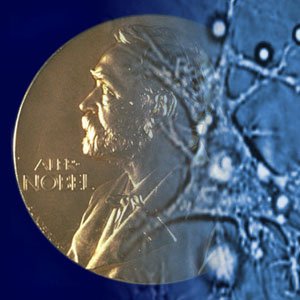The Nobel Prize, the highest honour in science, was today awarded to three distinguished researchers in the field of Physiology and Medicine.
 This year’s Nobel Laureates have revolutionised our understanding of the immune system by discovering key principles for its activation.
This year’s Nobel Laureates have revolutionised our understanding of the immune system by discovering key principles for its activation.
Scientists have long been searching for the gatekeepers of the immune response by which man and other animals defend themselves against attack by bacteria and other microorganisms. Prize recipients Bruce Beutler and Jules Hoffmann discovered receptor proteins that can recognize such microorganisms and activate innate immunity, the first step in the body’s immune response. The award will also be shared with Ralph Steinman who discovered the dendritic cells of the immune system and their unique capacity to activate and regulate adaptive immunity, the later stage of the immune response during which microorganisms are cleared from the body.
Sadly, Ralph Steinman passed away on Friday from pancreatic cancer – after the Nobel panel had made it’s decision, but before they had informed the winners. The Nobel panel hes decided to award the prize to Steinman in these exceptional circumstances, despite the statutes of the Nobel foundation stating that work produced by a person since deceased shall not be given an award.
The following comments were gathered by our colleagues at the UK Science Media Centre.
Judith Willetts, CEO, British Society for Immunology, said:
“This year’s Nobel Laureates for Medicine are three mould-breaking immunologists. The work of Bruce Beutler, Jules Hoffmann and Ralph Steinman has given us a vital understanding into our bodies’ immune system and how it enables us to fight infection and disease. Their work in innate and adaptive immunity has allowed many others working in the field to develop new preventions and therapies in the fight against infections, cancer and other diseases.
“The recognition by the Nobel Committee of the work of Bruce Beutler & Jules Hoffmann, for their work in Toll-like receptors (TLRs), and Ralph Steinman for his discovery of the dendritic cell, is enormously important for the discipline of immunology as a whole, as these discoveries have helped to interconnect and consolidate key aspects of immune function – namely the function of innate and adaptive immune systems.
“In identifying a receptor (TLR4) on immune cells that responds specifically to a unique bacterial product (lipopolysaccharide or LPS), Beutler and Hoffmann started the work of uncovering the specific mechanisms that underlie the “hard wired” innate immune system that is able to respond quickly to a range of infective microorganisms without prior exposure.
“In identifying the dendritic cell, Ralph Steinman uncovered a key aspect of adaptive immunity, as these cells form an important part of the body’s infection surveillance system – gathering-up molecules from different parts of the body and ‘presenting’ them to effector cells of the adaptive immune system – thereby connecting identification with response.
“A further dimension to both sets of researchers’ work is provided with the realisation that dendritic cells also possess TLRs – and this allows these cells to form an important bridge between innate and adaptive immunity. Dendritic cells may be activated via their TLRs, allowing innate signalling to initiate a more specific adaptive immune response.”
Dr Mark Downs FSB, Chief Executive of the Society of Biology:
“Understanding how the immune system works is essential for the treatment and prevention of diseases. The discoveries of these three Nobel Laureates is an excellent example of the impact we all get from investment in basic research, illustrating the benefits of understanding basic processes in the body and how long term they can impact clinical outcomes.”